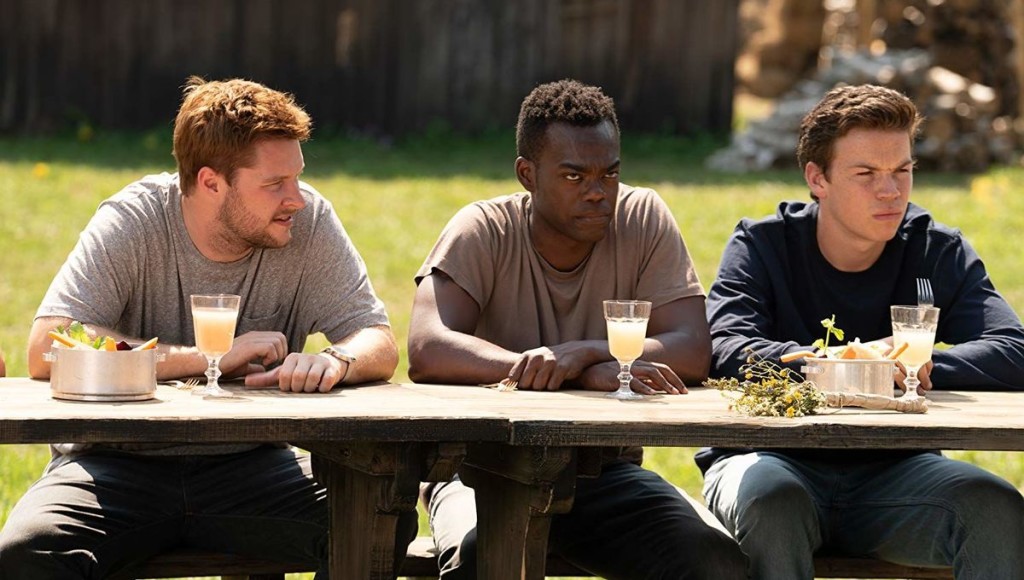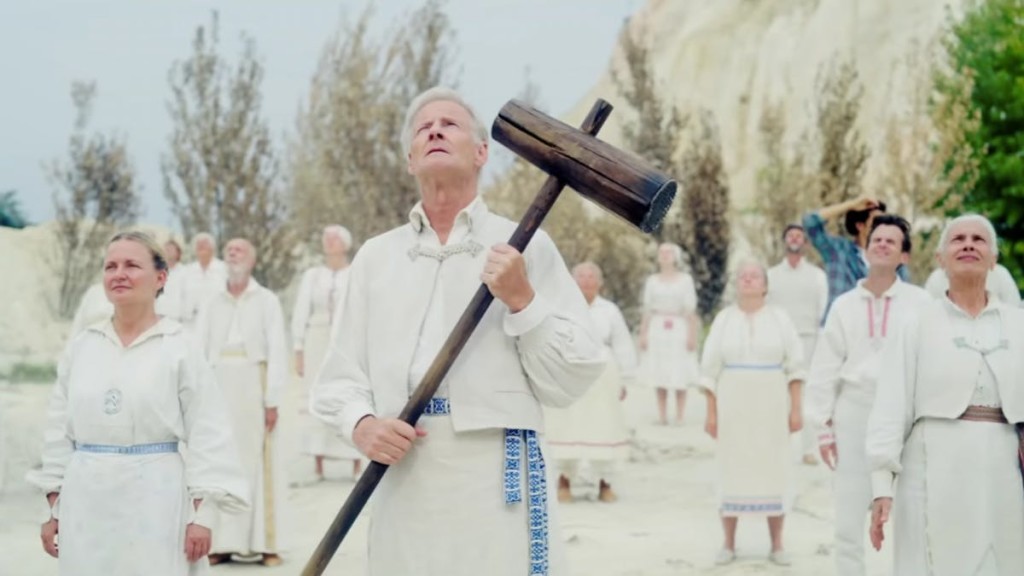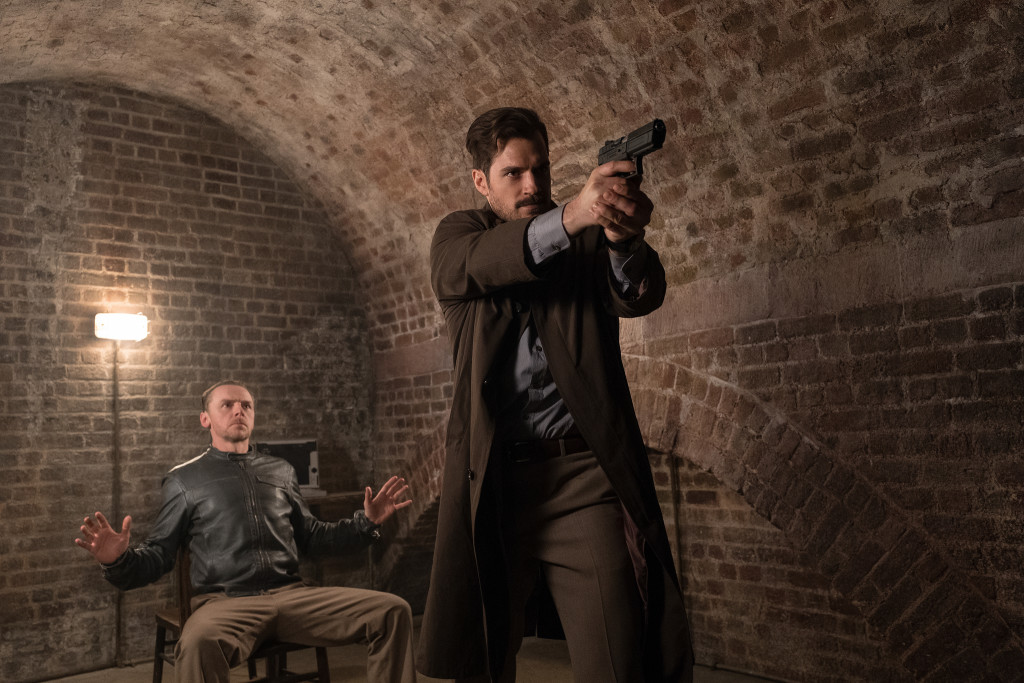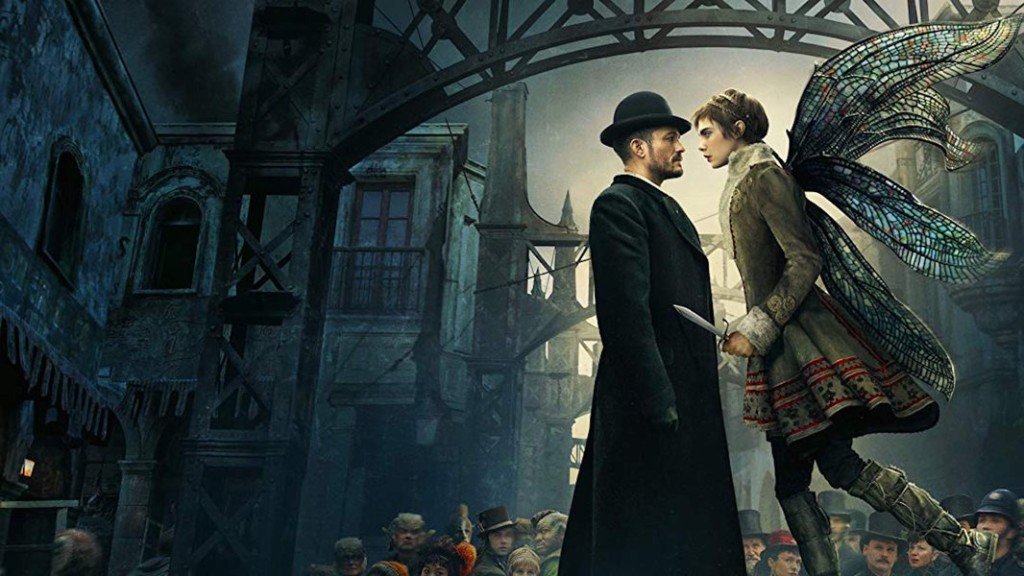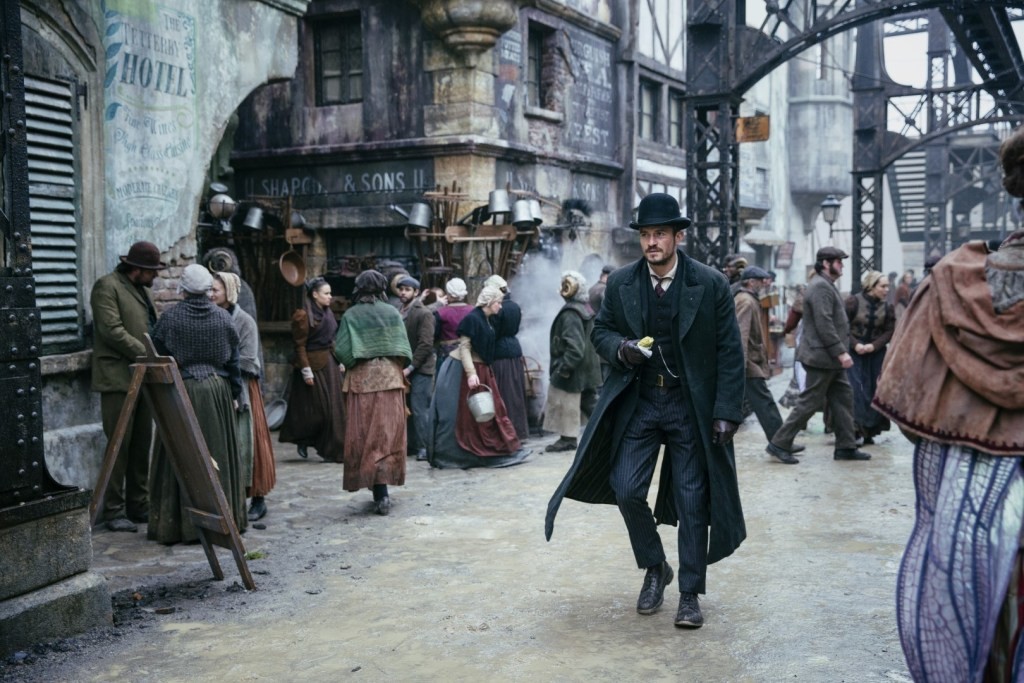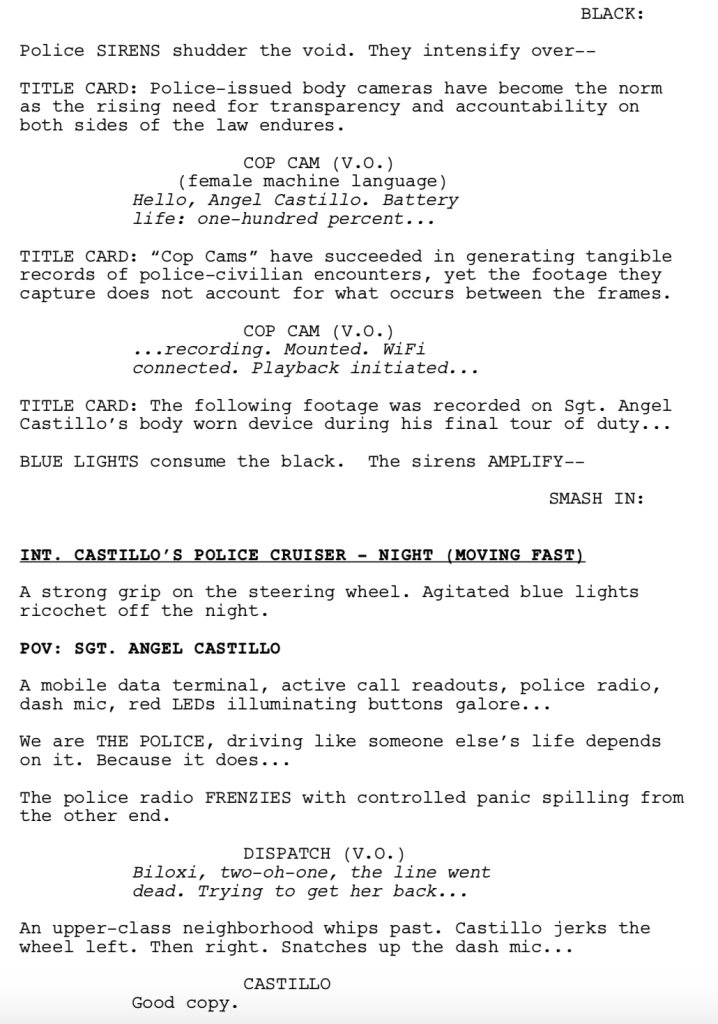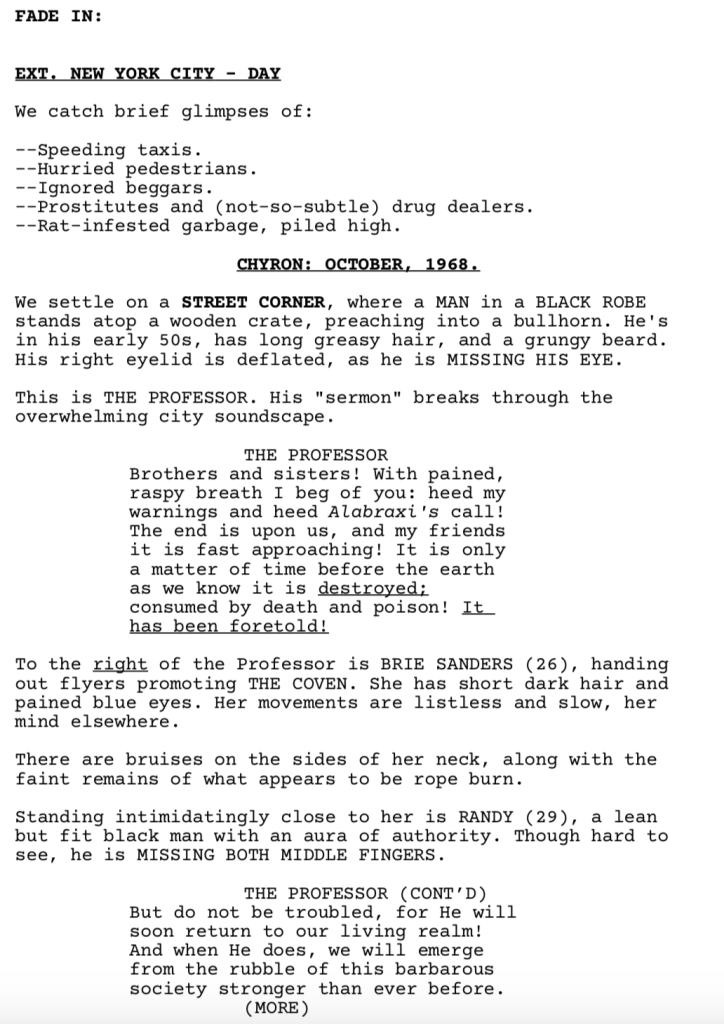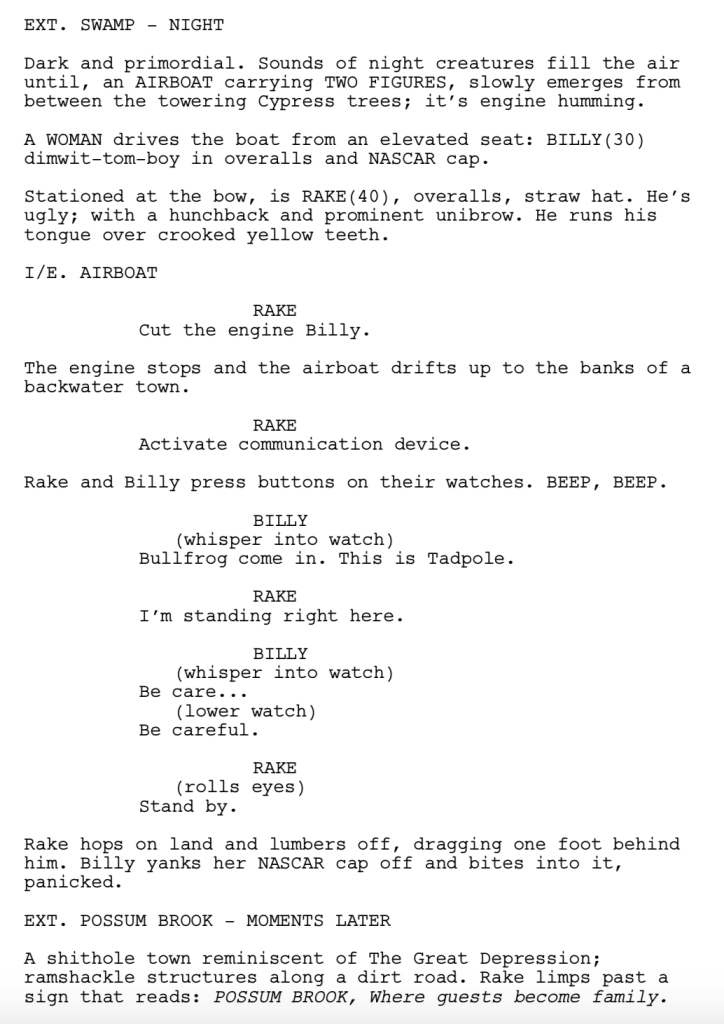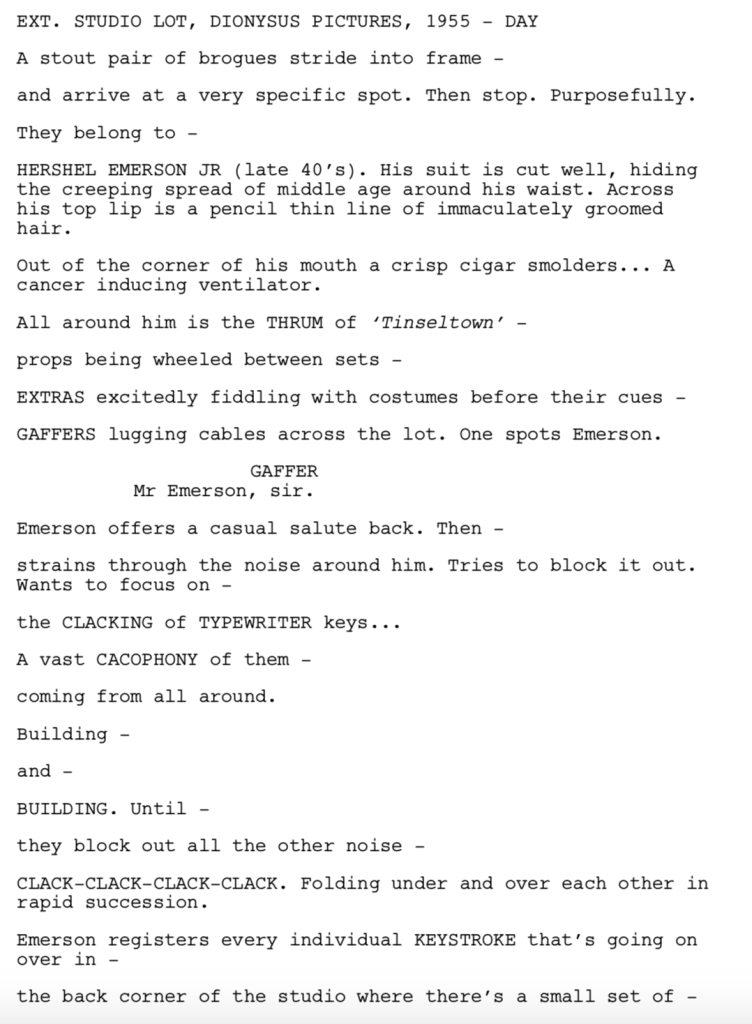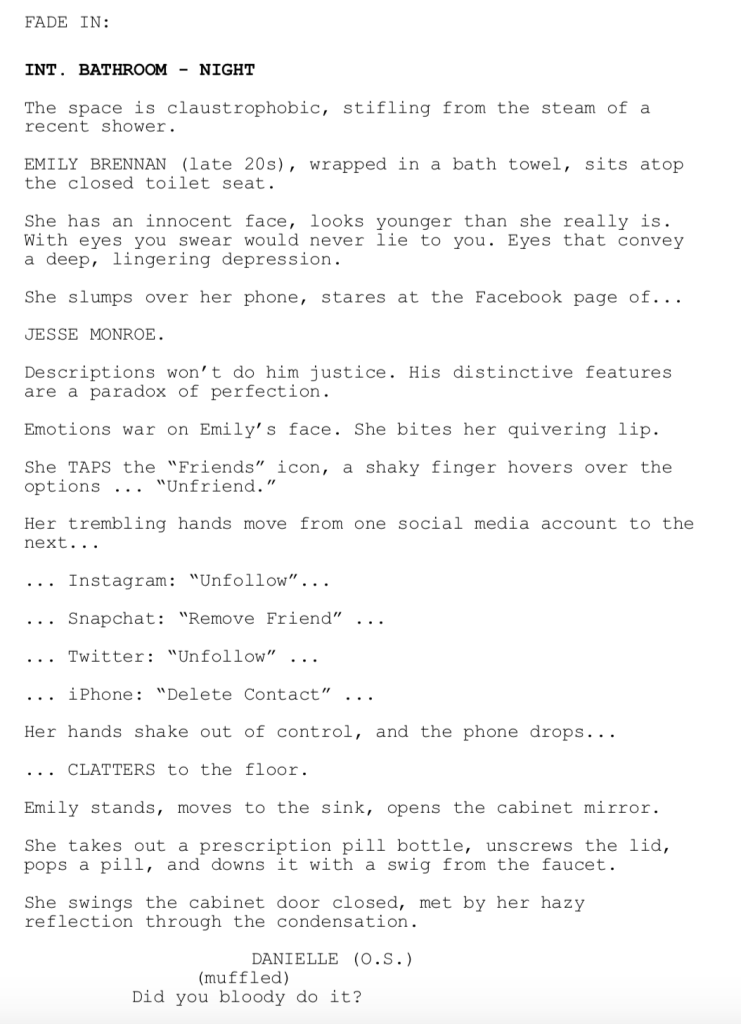Search Results for: the wall
Genre: Horror
Premise: (from IMDB) A group of friends travels to Sweden to attend a reclusive mid-summer festival. What begins as an idyllic retreat quickly devolves into an increasingly violent and bizarre competition at the hands of a pagan cult.
About: Writer/Director Ari Aster was anointed to “next big thing” status when his intense not-for-everyone film, Hereditary, became indie studio A24’s biggest movie ever. Aster didn’t waste any time, using the buzz to launch his next project, Midsommar, immediately. The film didn’t perform as well as hoped, making $27 million domestically compared to Hereditary’s $44 million. Still, Aster’s now loyal following loved it, and it’s expected to do very well on digital.
Writer: Ari Aster
Details: 150 minutes!
I resisted seeing this when it came out because it was written and directed by Ari Aster, the writer of the worst screenplay ever, Hereditary.
But conflict lives deep within my heart as I’ve always wanted a great modern day horror film about cults. And while I despised the screenplay for Hereditary, I had to admit its trailer exhibited a talented directing eye. Then Martin Scorsese spent 30 minutes of a recent Q&A talking about how much he loved Hereditary and I finally said, “You know what. I’m going to see if this guy learned anything about screenwriting since his last film,” and popped Midsommar into the old Apple TV.
The premise for the film is a simple one. A 20-something girl, Dani, loses her sister to suicide. Incidentally, the carbon monoxide she used to kill herself also leaked into her parents’ room and killed them too. So Dani is one family down.
Her grad school boyfriend, Christian, is tagging along with his Swedish friend, Pelle, and a couple of other guys, to check out a mid-summer festival in Pelle’s rural Swedish village. Dani decides to join them and off they go.
There’s a strong Heaven’s Gate vibe to the white-clothed hippy community and yet nobody thinks to turn and leave. They can’t, of course, or else there would be no movie.
The people there seem nice (don’t they always), and invite everyone to a ceremony where two elders are brought to an overarching cliff to speak to everyone. Except they don’t say a word. They JUMP! And die. Splat.
In real life, our characters would sprint to the nearest airfield and stow away in the landing gear if it got them away from this psychotic Swedish Manson cult. But no, our characters choose to stay and see what these wily Swedes are up to next. Naturally, these things turn out to be nefarious and one by one, our characters die in awful ways.
Before we get to the script stuff, lots of people were surprised that this film didn’t do as well as Hereditary. Yet the reason is simple: It’s hard to pull horror off in the daylight. You can do it with zombies. But you can’t do it with much else.
The reason horror works so well is because the darkness activates the imagination. It offloads the work from the movie to the viewer. They get to fill in their own fears with what’s in the corner of the dark room, what’s at the bottom of the dark basement stairway, who that shadow belongs to at the end of the dark hallway.
You don’t get any of that with daylight. So you have to find your horror elsewhere, and that can be challenging. So when you see this big bright movie that’s being advertised as a horror film, it’s confusing. And people aren’t going to show up to confusing. They want a good idea of what they’re walking into.
Now from a cinematic perspective, Aster’s choice is exciting. There’s irony in the search for fear in daylight. And outside of some annoying directing choices, Misommar works. That’s because every viewer knows this place is bad news. So as long as you keep a log on the fire for the next looming threat, we’re going to be into it.
Surprisingly, the thing that makes Aster a bad writer also helps him. When your narratives are weak and unfocused, as both this and Hereditary are, it gives the story a natural unpredictability. If you’re not following any common act or scene beats, we’re not going to know what’s coming next. And that’s why I kept watching. I had no idea where this was going.
Aster also put a lot of work into the mythology of this village and it paid off. I trusted that whenever something happened that was tied to this place’s weird rules, it was authentic, because I could tell Aster did his homework. I mean there’s a giant barn where the entire inside is covered in a historic mural of this clan’s history. You can’t make that sort of thing up on the fly. You have to know it and convey it to the art department.
Which is what makes this movie so frustrating. If Aster took some time to learn screenwriting, he would be unstoppable. Cause as a visual storyteller, he’s quite talented.
To give you an idea of what I mean by bad writing, Christian comes up to one of the friends after the two elders kill themselves and tells him he wants to write his thesis paper on this clan. The friend gets mad, replying, “I told you already. I was writing my thesis about this place!” Not only did I have no idea that either of these two were writing theses before this moment. But I didn’t even know they were in school. That’s how poor the writing was. We’d find out major story components after the fact.
There were all sorts of character issues here. Why doesn’t Pelle warn his best friends that they’re about to watch two people kill themselves? Why wouldn’t he brace them for that? Tell them that if it’s too much, they might want to sit the ceremony out? I’ll tell you why. Because if he did, Aster wouldn’t have been able to write the scene.
A bad writer says, “Well I’m just going to do it anyway.” A good writer says, “I have to figure out a believable way in which he wouldn’t tell them.” Why do bad writers always go with the former? Because it’s eaasssssyyyyyieeer!! It’s easier not to do the work! Are you telling me I may have to sit down several hours a day for a few days until I come up with a believable reason for why my character wouldn’t warn his friends about this? Screw that. It’ll take too long!
But I think Aster’s taught me the secret to getting these daytime horror movies right. Just follow two rules. One, be weird. Be really really weird. You don’t have the darkness to hide behind so, instead, have a bunch weird crap happen. This is why Wicker Man is still the champion of this sub-genre. You’d have little kids joyously singing about sex through choreographed dances. Or naked women singing about boning you while banging on the other side of your hotel room wall.
The other tool to use is shock. And this is something Aster is becoming known for. I mean he killed a main family member in his last film by having her stick her head out the window and get it decapitated by a telephone pole. Watching an uninterrupted shot of a woman jumping to her death and her head splattering over a rock in real-time certainly jolted me awake.
Now Aster just needs to figure out character. I had no idea who Christian was throughout this. None. Is he a good boyfriend who will do anything for Dani? Is he a bad boyfriend who takes her for granted? Every scene would vacillate between those two extremes to ensure that you never knew the guy.
Seasoned screenwriters know that if a character is unclear, you go back to their introductory scene and you use that scene to make it abundantly clear who the character is. When we meet the Joker, what is he doing? He’s looking in a mirror desperately trying to squeeze his lips into a smile. I know more in three seconds of that scene about that character than I do about Christian from watching this entire movie. That says something.
I’m going to log this as a step forward for Aster. It’s more interesting than Hereditary. And I watched til the end, which says a lot since this is 150 minutes. But keep working on your writing man. Or find a screenwriter you connect with. That could really skyrocket your career.
[ ] What the hell did I just watch?
[ ] wasn’t for me
[x] worth the rental
[ ] impressive
[ ] genius
What I learned: Here’s a simple test to see if your characters are acting realistic or not. If you were in their shoes, would you do it? If you had just watched two people jump to their death in a pagan ritual, would you stay for another three days? Or would you leave? If the answer is leave (which it is), then you need to come up with a realistic reason why the characters would stay. (This is why so many horror films have their characters stuck somewhere. That way, they never have to worry about this question)
A big complaint I had with yesterday’s script was that the character writing was too thin. The extent of the character work was that the main character was grieving the loss of their father. On the surface that sounds like a deep issue to explore. A family death is a tragic experience for most people. But that’s only if you actually explore it. If it’s something mentioned at the beginning of the script and then it never comes into play again, that’s not good character development. To be clear: If nothing “develops” then it’s not character “development.”
I received an interesting response in the comments section pointing out that in these quick thriller and action scripts, you don’t have time to develop characters. I’ve heard this argument quite a bit. And the people who use it actually go one step further. It’s not just that you don’t have time, they argue, but the audience isn’t interested in character development in movies like this. They just want to see volcanoes impale people. Or John Wick throw ninja stars at the bad guys. I understand what they’re saying because it’s partly true. People go to dramas to see character exploration. They go to action movies to see action.
But what they’re forgetting is that the degree to which your audience connects to your characters is the same degree to which they care during the action scenes. Have you ever watched the most amazing big budget action scene ever and yet been totally bored? Chances are, it’s because you felt nothing for the characters involved. Have you ever watched a garden variety action scene and been riveted? Chances are you felt a closeness to the characters akin to the way you feel around your best friends. The only difference between those two scenarios is character development. The writer is doing something with the characters that’s making you feel a greater connection to them.
So where did this “no country for character development in action” rumor begin? I suspect it comes from franchises like Mission Impossible, James Bond, and Fast and Furious. Because, yeah, there isn’t a lot of character development in those films. But that’s because those characters stopped changing a long time ago. These days they’re more like old friends who come around every once in awhile to catch up. This creates the false impression that, well, those characters aren’t changing, so mine don’t need to change either.
And they don’t. There’s no rule that says your character HAS TO DEVELOP. But if you want to create more of a connection between your audience and your story, character development is the bridge that’s going to take you there.
But what is character development? Why do people have such a tough time boiling it down? I don’t know and I don’t care. Because what I’m about to do is tell you the secret to great character development. Are you ready? Here it is: There are two stories going on. The story in your movie and the story in your character. In other words, your character IS A STORY UNTO HIMSELF. Once you internalize that, your character writing is going to increase a hundred-fold.
That’s because you’re not just trying to move your plot from point A to point Z. You’re moving the story within your character from point A to point Z as well. So let’s take a very simplistic view of this and use yesterday’s script as an example. The main character’s dad had recently died. That’s why our hero was going on this trip. Well, how do you build a story WITHIN THE CHARACTER about that? The most obvious way is that they haven’t been able to move past their father’s death yet. So point A is that they’re still consumed by the death of their father. Point Z, then, is that they’ve finally found peace with their father’s death. And there you go. That’s a character’s inner story right there.
Still confused? Go watch the Pixar movie, “Up,” where this exact same inner journey is explored. In that script, the writers explored the hero’s issue through his refusal to connect with others. He’s been so hurt by his wife’s death that he doesn’t let anyone else in. So what happens? A little kid keeps trying to get in and get in and get in, until our hero’s defenses finally break down. By accepting this new friend into his life, he has finally gotten over his wife’s passing. Was this harder to write then simply having an old guy and a kid go on an adventure together? Of course. Which is why most people write that version. But if you want to affect people, you have to write the version that has inner character stories as well. It will take you longer but I promise it will be worth it.
And the great thing about a character’s inner story is that it doesn’t have to be one thing. It can be about moving past something. It can be about a deep set flaw that’s holding someone back. It can be about one’s struggle with an addiction. As long as you explore it in an honest way and that there’s some level of CHANGE in the character (they go from point A to point Z by the end of the script) then you’re writing something better than the average bear.
But how do you find these things, Carson? What kind of inner struggles are going to work in a movie about running from killer robots or hunting down Russian gangsters who killed your cat? The universal kind. The kind all of us go through at various points in our lives. Start with yourself. What are the major flaws holding you back in life? Do you constantly doubt yourself and therefore never take chances? Are you afraid to get close to people so you put up a wall? Do you put your work over your family? If you can’t find anything in yourself that works for your hero, move to friends and family. It’s easier for us to see our friends’ flaws than it is our own. Does someone not stand up for themselves enough? Is someone too close-minded? Does someone spend all their time planning for the future as opposed to living in the present?
Once you understand what a person’s flaw is (Point A) you understand where you need to take them (Point Z). You just have to make sure you check in on the inner story throughout the outer story. If a character only thinks about the future, you’re going to add 7-8 scenes (think of these as “Check In Scenes”) throughout the script where they’re given opportunities to enjoy the present and argue with other characters about why their way is the right way. I’m making it sound easy even though it’s not. You have to do all of this in a way that’s seamlessly integrated into the plot. The conversations can’t be on the nose. They have to seem spontaneous and organic to the place and time. But I’m telling you, your script is going to be better for it. Think of it this way: When you include a character’s inner story, the audience is getting two stories for the price of one.
And I’ll finish this by reiterating something it took a long time to learn: Hollywood has a million people who can put together a plot. But there are only around 100 who can create compelling characters. Which is why those writers are the most coveted. Do with that info what you will! :)
Genre: Nature Thriller
Premise: (from Hit List) A young woman grieving the death of her father, along with several other strangers, must survive the Cascade Mountains in the aftermath of a catastrophic natural disaster…only to realize that their greatest threat isn’t nature itself, but someone within their group. Inspired by the true violent history of the famed Cascade Mountain Range.
About: This script made last year’s Hit List with 17 votes, putting it near the middle of the list. It hasn’t yet sold.
Writer: Larry Lasky
Details: 93 pages
The nature thriller is a legit genre.
Get a few characters (or even one character), throw them into an ugly nature-centric debacle, then let the drama unfold!
However, what I’ve found with these scripts, is that they often feel like the little cousin of the more fantastical “people in peril” scripts. How can trying to survive a hike compete with a bunch of huge dudes being hunted down in a forest by an alien predator, you know?
So Lasky’s decision to explore a “go-between” version of these two worlds was a clever one. This isn’t, “a group of hikers get lost and run out of water then must find their way back to society.” There’s giant toxic smoke clouds chasing them in one direction and slithering pools of lava coming at them from the other.
And Lasky knows how to get you pumped for it. If you don’t want to read this script after reading the first page, you’re one stingy reader. That snazzy opening gives you a quick rundown of the Cascadia Subduction Zone, the 700 miles that connect the Pacific seabed with the Pacific Northwest. While we’ve been freaking out about the San Andreas faultline this whole time, it was recently determined that Cascadia is much worse.
20-something Hannah Rhodes is heading up to the Cascade Mountains to do the group hike she used to do with her dad all the time. Ever since her father died, Hannah’s been having issues with her mother to the point where they’re not talking. So she’s got a lot of emotions going on when she shows up for the trek.
She meets the rest of the hikers: Ryan, a cute guy her age, Nico and Gwen the couple who can’t stop making out, Javi, the cool motorcycle guy, Philip and Mei, a Chinese couple, and Walt, the old timer. After they exchange pleasantries, their guide, 30-something way-too-intense Shane Decker, shows up. Decker’s like, “Let’s roll” and off they go.
Mere hours after they begin their trek, an earthquake hits. Decker says not to worry. This is a high-frequency earthquake zone. But later on, another one hits. And this one is HUGE. How huge? They watch a mountain in the distance crumble like an anthill. A few minutes later, Philip is swallowed by a sinkhole turning his wife into an #instantwidow. And if shattering mountains and giant sinkholes aren’t bad enough, an inactive volcano explodes, sending mucho lava their way.
This turns Bad Boy Decker into Hannibal Lecter for some reason. He’s ready to kill Hannah until she reveals a secret: her mother is a Senator! Decker believes that if they can find an area with reception, Hannah can call her mom and get them on the Priority Rescue Express. So he begrudgingly decides to work with everyone to escape the mountain.
After a determined wall of toxic smoke and a very hungry mountain lion, we find out that Decker isn’t Decker. He’s some guy named Loeb who’s smuggling diamonds that he may have killed someone to get. Once the cat’s out of the bag, Loeb starts killing people. Hannah and the others try to escape but Loeb hunts them down. Eventually they realize the only way they’re going to ditch this psycho is to kill him. Who’s going to come out on top – the hikers, the killer, or the mountain?
Here’s the thing with Tremble.
It’s not a bad script.
But it’s too predictable.
One of the ways I judge a script is I say, is this a script that any screenwriter could’ve written?
Remember that your duty as a screenwriter isn’t to write the version of the story that anyone could write. It’s to write the one that’s a step beyond what everyone would write. Or else why do we need you? If we can hire 99 other screenwriters who would give us the exact same thing, why do we need you?
Let me give you an example. You’re writing an action movie. There’s going to be a car chase somewhere in your movie. The average screenwriter writes a truck chasing a car down a highway. The EXCEPTIONAL screenwriter has a truck chasing a motorcycle down a viaduct. Aka, Terminator 2.
We even get the ubiquitous shot in Tremble of a giant wave crashing into a city. When I see that? I know I’m dealing with a writer who isn’t digging deep enough. You’ve got to think beyond the image that’s been in every single destruction movie trailer for the last 20 years.
And, unfortunately, this predictability extended into the characters. Decker shows up and the first thing he does is tells everyone to eff off because the tour’s canceled. In other words: Instant Villain. If you were someone who just killed someone to steal a bunch of diamonds, wouldn’t the better plan be to act nice and inconspicuous? Not only that, but imagine how much more appealing the role is to an actor if the character starts off nice and helpful, then midway through becomes angry and psychotic? That increases the value of that role by 1000%.
The secret sauce that makes these scripts thrive (as opposed to dive) is the character work. Because even if Lasky had come up with a couple of great original set pieces here, ensembles require intricate character work that goes deeper than snap surprises. Hannah’s mom being a Senator. Decker being able to speak Mandarin. These are surface level secrets that affect the movie for less than 3 seconds. To connect with the audience, the exploration needs to go deeper.
Take a book like “Wild,” which was also about hiking and overcoming a parent’s death. What made that book this monster bestseller was that the main character was fighting an overwhelming sense of fear and doubt. She didn’t even think she could make it through the first leg, much less the entire West Coast. Watching her slowly believe in herself and overcoming that deep set flaw is what made the book so emotionally satisfying.
Look, I get that we’re not all Hemingway. And even Hemingway wrote some bad novels. But the one thing I require when I read a script is that the writer give their all. If I recognize two or three major situations from other popular movies or TV shows, I know the writer isn’t digging deep. For example, the Asian couple where one of them couldn’t speak English. That was a major plot thread in Lost. Again, I don’t think this was bad. I just feel like Lasky could’ve done more with it.
[ ] What the hell did I just read?
[x] wasn’t for me
[ ] worth the read
[ ] impressive
[ ] genius
What I learned: Here’s a line from the script: “Far off, an ENTIRE MOUNTAIN CRUMBLES, SHATTERED LIKE GLASS.” When you’re writing something as enormous as an entire mountain crumbling, you need more than one line to describe it. When HUGE EVENTS happen, you want to EXPAND THE AMOUNT OF SPACE THEY’RE GIVEN ON THE PAGE, not send them off to the corner for a screenplay time-out.
Genre: Period/Fantasy
Premise: A detective reunites with the fairy he abandoned while investigating the most notorious serial killer Carnival Row has ever seen.
About: Once thought of as the best unproduced screenplay in Hollywood, Killing on Carnival Row has had a series of suitors come onto the project, only to leave after finding it impossible to produce. It was going to take an extraordinary budget to realize the mythology at the center of Carnival Row and without any superheroes or even familiar characters executives could sell to their studio heads (“Can’t we just throw Robin Hood in there or something?”), the project kept running into brick walls. Enter Amazon Prime and their giant forest of money. 14 years after Travis Beacham wrote the script, it debuted this weekend on the streamer.
Creator: Travis Beacham & René Echevarria
Details: First Episode is 60 minutes long
If there ever was a project that exemplified the struggle of getting something made in Hollywood, it would be Carnival Row. Just to give you some perspective on how difficult it was to get this made, the model by which it finally got produced didn’t even exist when the script was written. Nobody was making 150 million dollar TV shows back in 2006.
So the question has to be asked: How did this get made? And can we learn anything from it that will help us hawk our own projects? I can answer that easily. 99% of every movie or TV show you’ve seen has been the result of someone SO PASSIONATE about their project that they refused to take no for an answer. This is how you get stuff made. In a system so wacky every studio in town turned down Back to the Freaking Future, you can expect more no’s pitching a movie/show than you’ve ever heard in your life.
Remember, you’re asking people to put forward tens, sometimes hundreds, of millions of dollars to see your project realized. This for something that’s a complete gamble! That model requires a dedicated passion that few people are capable of exerting over a long period of time.
But there’s a second part to this answer. The script actually hast to be good. Carnvial Row spent 5-6 years as the unofficial top script in Hollywood. It wasn’t like Beacham was running around with a watered down first draft of something called, “Ned’s Basement.” The script had earned a reputation which is why people kept jumping onto it. It’s an important distinction because I don’t want anyone pushing Ned’s Basement thinking, “Well Carson said that passion is all I need!” There has to be some feedback that indicates you possess something of value.
Due to the project’s backstory, I wasn’t watching Carnival Row like the average viewer was. I was taking into account ten years of history on the project. How was it going to end? Would it be as game-changing as the script? Or would it be a cautionary tale, a compromised glorified piece of Hollywood fluff? And what about the change to television? Was that a good idea? I invite you to find out.
Our opening teaser thrusts us into a mass fairy hunt through the forest. You may be wondering why our fairies don’t just fly away from their pursuers. That’s because a giant barbed wire ceiling has been laced throughout the forest preventing this very action. Only a single fairy, Vignette, is able to escape, leaping off a cliff at the end of the forest and flying to a nearby ship.
We then cut to “The Burgh,” which can best be described as 18th century London except with fairy prostitutes and human-ram hybrids. A young rich woman, Imogen, is excited when she learns that a hot rich gentleman will be moving in across the way. Nearby, Detective Philostrate is walking the streets looking for a serial killer who’s murdering fairies.
After the ship Vignette escaped to is attacked and sinks, she floats up on shore, the only survivor from the ship (man is this girl lucky!). The owner of the ship, Ezra, is informed of its fate, but given a consolation prize. Vignette, the lone survivor, is technically his! So he adopts her as a servant in his household, which we learn is also his sister, Imogen’s, place.
Vignette is no stranger to the Burgh. She used to live on Carnival Row, the seedy underbelly of the city, making a living as a prostitute. So she heads back to see some old friends and learns that the love of her life, Detective Philostrate, is still alive. This is a big deal since the only reason she left this hellhole was because she was told he was dead. Vignette doesn’t waste any time, charging through the Row to find and confront Philostrate. When she finally locates him, he admits that he fed someone the lie to end their relationship. And you thought getting dumped by text was bad.
Their situation is left unresolved because we need to see yet another poor fairy get murdered by the Carnival Row serial killer. We conclude the episode with the shadowy figure pulling the screaming girl into his subway cave.
So how was it? Worth the wait?
I’ll say this. TV is the better format for this show. This isn’t a singular experience. It’s a world. And when you have a world – at least these days – you want a TV show. So on that end, they made the right call.
But the adaptation of a feature script into a TV series is a difficult one. The primary alteration is that in movies you usually focus on a single hero. Sure, there are other characters, but we’re seeing them all through our hero’s eyes. Once you make the move to television, you can’t do that anymore. No character is interesting enough to be the focus of every single scene for 100 hours.
So what you have to do is create a BUNCH of heroes. Every character, all of a sudden, needs to have their own storyline, their own journey. This is challenging because creating even a single strong character is hard. Now you’ve got to create 10 of them. But if you’ve ever had trouble with character in your screenwriting journey, you should write a TV show just for practice. You’ll be surprised at how much you learn about the people in your story when you’re writing scenes just or them.
The distilled character concentration helps Carnival Row in some ways and hurts it in others. If I remember correctly, Vignette wasn’t that developed in the feature script. But now, with all this extra time, they can give her an entire backstory. This led to one of my favorite scenes, the teaser, where the fairies are getting chased through the forest. I’ve read hundreds of forest chase scenes. But I’ve near read one where fairies are running and “locked into” a ground chase because barbed wire is being used as a ceiling to keep them from flying. The horrid sight of numerous dead fairies who’d tried to fly off in the past only to get caught – their corpses now rotting on the wires – was a memorable image.
But in introducing all of these new characters and their storylines, the hero, Philostrate, gets way less screen time than he did in the feature script, where his pursuit drove the entire story. In fact, he gets so little screen time that it took me a few scenes with him before I realized he was looking for a serial killer. If there’s a knock on this pilot, it would be that the stakes feel low. And that’s likely because Philostrate’s pursuit didn’t feel that important.
Not to mention, the pilot opens with that mass fairy killing scene. If we just watched a hundred fairies gets slaughtered, a fairy serial killer who’s got 5 kills under his belt doesn’t seem like the biggest problem anymore. This is one of things you have to be aware of when adapting features into TV shows. You have to make sure the added plot doesn’t neuter the storylines that made the feature so great. It can be hard to keep track of that when you’re so deep inside your world.
Now maybe this is remedied in future episodes where the serial killer plotline becomes more prominent or an even bigger plotline is introduced that drives the story. But I wouldn’t have gone that route if I were them. I know every creator these days assumes their shows will be binged like movies but bingers are still a small percentage of the TV audience. Most people have busy lives and lots of choices for their entertainment. If they’re not pulled in by that first episode, they’re not going to click on the next one (despite Amazon’s lightning fast efforts to get you to do so – no more than three seconds after the pilot was over, a new episode began!).
My gut reaction to this pilot is that I liked it. The realization of this world, outside of a couple minor issues (the $2 ram helmet that ram characters are forced to wear being the most egregious) is as strong as it was in Beacham’s script. But the only question that matters when it comes to pilots is, “Will I watch another one?” I go back and forth on it. Maybe? Like I said, the stakes feel low. And that hurts in a show like this, where the exemplary production value implies a Game of Thrones or Lord of the Rings like set of stakes.
What did you think?
Original Script Link: Killing on Carnival Row
[ ] What the hell did I just watch?
[ ] wasn’t for me
[x] worth the stream
[ ] impressive
[ ] genius
What I learned: Whereas you might be able to get away with not writing character bios for a feature, you ABSOLUTELY HAVE TO WRITE THEM for a TV show. Every character needs AT LEAST a two page biography. But I would encourage you to write as many as five pages. Take two weeks before you write your pilot and spend two days writing out each character biography in as much detail as possible. Trust me on this. You will know your characters a million times better, which will in turn make them a lot more interesting on the page.
It’s going to be Monday Madness when I review Hobbs & Shaw and determine the question that’s been eating at us for over a decade. Is it possible to make a good Fast and Furious movie without Vin Diesel? They’ve tried before and the results were disappointing. Could the rumor be true? That Dominic saying “family” once every five minutes is the only way these movies work? I’m eager to find out. I’m also eager to see what happens when you make a Fast and Furious movie a sci-fi flick, since apparently that’s where the franchise is headed.
Good news this week as participation does not require any dancing.
If you haven’t played Amateur Showdown before, it’s a cut throat single weekend screenplay tournament where the scripts have been vetted from a pile of hundreds to be featured here, for your entertainment. It’s up to you to read as much of each script as you can, then vote for your favorite in the comments section. Whoever receives the most votes by Sunday 11:59pm Pacific Time gets a review next Friday. If you’d like to submit your own script to compete in a future Amateur Showdown, send a PDF of your script to carsonreeves3@gmail.com with the title, genre, logline, and why you think your script should get a shot.
Note: Accessing scripts should be a lot easier this week as I’m using Google Drive. :)
To all who have entered this weekend’s contest, I wish you…. GOOD LUCK!
Title: Cop Cam
Genre: Found footage/Crime-thriller
Logline: Told through the lens of a police-worn body camera, a retiring cop with a baby on the way faces the most harrowing shift of his career after a traffic stop devolves into a violent mess affecting both sides of the law.
Why You Should Read: I’ve always thought a found-footage film involving a cop’s body camera would be an interesting concept to explore. Police-worn body camera footage persists as some of the most controversial, yet fascinating forms of real-time-media in existence today. Think about it, when’s the last time you didn’t click on a “contains graphic content” police video that was shared to social media? The footage always tells a story, but rarely captures the facts in their entirety. As a police lieutenant, I watch countless hours of body cam footage from the officers under my watch and am rarely ever bored. On the contrary, they typically inspire movie ideas for my scripts. For “Cop Cam”, I wanted to infuse elements from some of the most disturbing videos I’ve encountered into a grounded, found-footage crime-thriller told from the first-person perspective of one cop’s final day on duty. While most found footage films deal in supernatural horror, I aimed to bend the genre here into purely thriller territory, although a lot of feedback has mentioned it certainly flirts with horror. The script just received positive coverage from WeScreenplay: “This high-octane, action-packed thrill ride is a rip-roaring page-turner told with unflinching authenticity. The amount of story, twists, and turns in this tight script is a strong showing of narrative economy. A cops and robbers caper that unfolds like a beautiful car wreck with a continually worsening state of affairs that’s likely to appeal to mass audiences. This is one flat out cool movie.”
Title: Coven
Genre: Psychological Horror
Logline: When a homeless teenage girl becomes the newest member of an acid-popping doomsday cult known as The Coven, a long-dispirited member makes it her mission to escape with the young girl before she falls under the spell of The Professor, their abusive yet charismatic leader.
Why You Should Read: Like many screenwriting hopefuls, I submitted some scripts to the Nicholls this year, hoping that one of them may be the script that changes everything. Unfortunately, this year was not my year. Nevertheless, “Coven” finished in the top 10% – a personal best and a sign that my work is improving year after year. While I impatiently wait for the reader comments, I figured it would be awesome to get some feedback from the community that arguably taught me the most about the art of screenwriting.
“Coven” is my stab at one of my favorite horror sub-genres: the cult film. It’s a weird, violent, psychedelic, slow-burn story with a heavy emotional core, featuring a strong female lead who works to escape the trauma of her past and the physical (and psychological) prison she’s found herself in. And to sweeten the pot, about 90% of the film takes place in one location, so it can made on a shoe-string budget (I’m looking at you, Blumhouse!).
Many thanks to anyone who gives this a read; whether it’s the whole thing or just a few pages, any and all feedback is greatly appreciated! And a special thanks to Carson for holding a forum where a nobody like me can get their work in front of so many smart and talented people. Looking forward to hearing what you guys and gals have to say!
Title: MYSTERY MAN
Genre: Action Comedy
Logline: America’s favorite mystery author returns home for his father’s funeral and reluctantly teams up with his crazy sister who believes their father was murdered.
Why You Should Read: The inspiration for “Mystery Man” was derived from a love for whodunnits and my wacky home state of Florida. With twists and turns that will keep you guessing to the very end, “Mystery Man” is raunchy at times, heartfelt at others, and always weird. “Mystery Man” was a semifinalist in both the 2017 Stage 32 Annual Comedy Contest and Screencraft’s Annual Comedy Contest. It also placed second in Final Draft’s Annual Big Break Contest (2017) in the comedy category. Subsequently, “Mystery Man” was optioned for a year. The option recently expired so it’s now back on the market!
Title: INK
Genre: Noir
Logline: When screenwriter Don Miller goes missing from the lot of Dionysus Pictures, toon actor Chester Charles is sent to try and discover where he is, but soon finds himself shoulder deep in the greatest conspiracy that Tinseltown has to offer.
Why You Should Read: My last script WONDERLAND was featured here on Scriptshadow and I received some really great feedback from the community. One of the big notes was that people wanted to see me play in my own sandbox rather than build on someone else’s work… So, I created one… A conspiracy thriller set in an alternative 1950’s Hollywood where the moguls that run the place are willing to turn to nefarious means to keep their stars in order (both human and toon), their wallets fat and the ‘Red Menace’ at bay. INK marries the Disney Conspiracies with Who Framed Roger Rabbit and adds a smattering of observations about the manipulative power of the media.
Title: BROKENHEARTED
Genre: anti-rom-com
Logline: In a misguided attempt to mend her broken heart, a lovelorn twentysomething decides to pursue a casual, no-emotions-attached fling with a womanizing stranger from Tinder.
Why You Should Read: Greetings! An older draft of this script won the Austin Film Festival Drama Screenplay Competition in 2017. Prior to the festival win, I secured a manager who found me on Blcklst after Brokenhearted received that magic number 8 (amongst some 7s and 5s.) The script got me general meetings at a few reputable production companies and one big studio (Naming names feels tacky.) I had the opportunity to pitch on an open assignment. (Crashed and burned obviously.) Brokenhearted has always been a divisive script, and with the encouragement of my manager, I did a massive rewrite of the script alongside a credited director. The rewrite involved structural changes, supporting character gender swaps, and massive “killing of darlings,” particularly chatty banter dialogue sequences. The new (and improved?) draft landed just outside the Top 5% (Quarterfinals) of the Nicholl Fellowship. I received the dreaded “some good news: your script just missed advancing, placing among the next 100 scripts after the 365 quarterfinalists” email. Aside from reads from the director, my manager, and a few writer friends, I haven’t really put this script out there for public scrutiny. Nicholl 2019 was the first real litmus test. I’ve written, re-written, read, and re-read this thing so many times that I’m completely emotionally detached. The re-write was a rewarding experience, one I feel produced a stronger draft. But my eyes stayed dry. I can’t help but wonder: has the script lost its soul? I’ll admit to being a bit of a lurker here on ScriptShadow for about the last year. As someone who has been active in the screenwriting community and contest circuit since 2014, I don’t know why it took me so long to join the party. (That’s a lie. It’s because I’m an INFJ.) And that was a long-ass “why you should read.” I promise the screenplay has a ton of white space. Thank you for your consideration!


